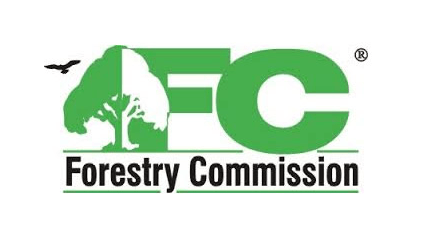NGO urges Forestry Commission to stop granting exploitation licenses, permits
 Vision 2050 Forestry (VFL), a non-governmental advocacy body, has called on the Forestry Commission (FC) to stop the granting of exploitation licenses, permits and conveyance certificates to preserve the country’s forests cover.
Vision 2050 Forestry (VFL), a non-governmental advocacy body, has called on the Forestry Commission (FC) to stop the granting of exploitation licenses, permits and conveyance certificates to preserve the country’s forests cover.
It says deforestation is changing weather pattern, drying up rivers and reducing agricultural output and that the FC must confront illegal logging seriously as it threatened livelihood and existence of rural communities.
Dr Frank Frempong, Chief Executive Officer of Vision 2050 Forestry, said the FC must be at the forefront in restoring the country’s forests.
According to VTF, Ghana’s tropical forest cover has decreased from 8.6 million hectares at the beginning of the 1900s to about 1.6 million hectares in 1990, and the deforestation rate is high – nearly 65,000 hectares per year.
He said the government’s inability to provide all the financial resources needed for the afforestation and reforestation projects called for the attraction of private capital inflow into the sector.
In this direction, he said the legal framework must be amended to allow for more private participation.
“In view of the magnitude of the harm humans have collectively caused the planet earth, we require climate friendly ideas to drastically reduce or reverse the trend.
“Private financing of greenhouse emission reduction projects, both domestic and international, can play a critical role in mitigating risk and leveraging greater private investment in climate projects,” he said.
Dr Frempong said VTF had invested $120 million to grow 200 million trees nationwide and suggested that demand for wood by the current generation could be met by culling only five per cent every year.
He noted that VFL had so far engaged 300,000 farm managers in 850 communities across the country to oversee its planted trees. In the past 20 years, funding of the projects has been privately sourced.
Dr Frempong said it was surprising that a number of logging concessions had been granted in forest reserves, and gold exploitation and mining leases have been granted in the country’s forest reserves to mining companies.
“The result is that Ghana has been transformed in the last 100 years from a lush forest country a low-forest cover country, and now our children, water bodies and wildlife are at risk,” he said.
He said the FC in playing the contradictory role of facilitator of timber exploitation had undermined its own prospects for success in forest conservation.
“The existing enforcement capacity is weak, leading to poor governance within the sector with a widespread disregard for forest rules and regulations,” Dr Frempong said.
The first forest policy was established in 1947 and actively encouraged the clearing and conversion of forests to agricultural land use.
Some examples are Forests Ordinances 1927, Forest Policy 1947, Trees and Timber Decree 1974, Tropical Forest Action Plan 1989, Forest Commission Act 1997, Forest Protection Decree 1974, Forestry Commission Law 1993.
In the 1980s, Ghana largely increased the national investments in logging equipment to service national deficit by wood-based exports.
Consequently, Ghana’s forests were put under excessive exploitation, illegal harvesting was rampant and there was neglect for established harvesting procedures in the mid-1990s.
In addition, forestry institutions became demoralised and inefficient because of continued underfunding.
The forestry policy was revised in line with Ghana’s 1992 constitution and approved in 1994 as the forest and wildlife Policy.
This policy provided opportunities for integrated forest management and for the first time gave right to Ghanaians to have access to the natural resources for maintaining their livelihoods.
The policy focuses on collaboration between the government and private entities.
However, the policy did not produce the expected effects as strategies were not developed by which the objectives of this policy could be realised.
In addition, the government’s focus was still on commercial exploitation of timber to service Ghana’s growing external debts: consequently the deforestation continued.
In 1996, a working group drawn from government, the private sector and communities developed the forestry sector development master plan 1996-2020 to guide the implementation of the 1994 policy.
Source: GNA
